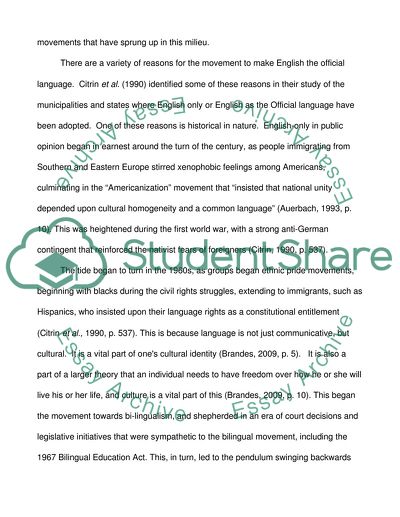Cite this document
(“National Identity and Language Rights Research Paper”, n.d.)
National Identity and Language Rights Research Paper. Retrieved from https://studentshare.org/social-science/1743432-conplications-of-designating-english-as-the-official-language-of-the-united-states
National Identity and Language Rights Research Paper. Retrieved from https://studentshare.org/social-science/1743432-conplications-of-designating-english-as-the-official-language-of-the-united-states
(National Identity and Language Rights Research Paper)
National Identity and Language Rights Research Paper. https://studentshare.org/social-science/1743432-conplications-of-designating-english-as-the-official-language-of-the-united-states.
National Identity and Language Rights Research Paper. https://studentshare.org/social-science/1743432-conplications-of-designating-english-as-the-official-language-of-the-united-states.
“National Identity and Language Rights Research Paper”, n.d. https://studentshare.org/social-science/1743432-conplications-of-designating-english-as-the-official-language-of-the-united-states.


